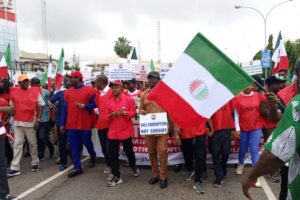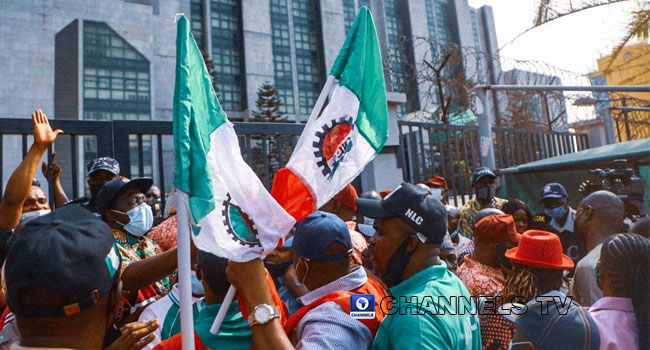The Nigerian labor congress in Nigeria is at a critical juncture as negotiations for a new minimum wage intensify. The Tripartite Committee on National Minimum Wage has embarked on daily meetings to reach a consensus, and an unexpected development has emerged: union leaders are willing to review their initial demand from N494,000 to N100,000.

The initial proposal of N494,000 faced criticism and controversy, with many considering it unrealistic and financially untenable for the nation. In response, the Minister of Information and National Orientation, Mohammed Idris, expressed concern about the proposed annual expenditure of N9.5 trillion, emphasizing that such a burden would strain the country’s finances. The situation escalated to an indefinite strike by organized labor, paralyzing economic activities nationwide. Banks, airports, public schools, and courts were shut down, prompting emergency meetings by the Federal Government to find a resolution.
In a bid to move negotiations forward, President Bola Tinubu intervened. He agreed to a national minimum wage higher than the initial N60,000 offer, and the tripartite committee pledged its readiness to convene daily until a new minimum wage is announced. Tinubu’s commitment was evident when he directed the Minister of Finance, Wale Edun, to present the cost implications for the proposed N100,000 minimum wage within two days.
Meanwhile, the Independent National Electoral Commission (INEC) extended the voter registration deadline to June 9, ahead of the Ondo and Edo governorship elections. This move aims to ensure broader participation in the democratic process¹. Additionally, the federal government’s compressed natural gas (CNG) program is set to reduce petrol imports by 5.5 billion liters, resulting in a $4.4 billion yearly savings on fuel importation. Finance Minister Wale Edun presented the accelerated stabilization and advancement plan (ASAP) to address key challenges and stimulate development across various sectors of the economy.
As the negotiations continue, all eyes are on the outcome. Organized labor’s willingness to reconsider their demands reflects a pragmatic approach, while the government’s responsiveness underscores the urgency of finding a sustainable solution. The N100,000 minimum wage proposal remains a pivotal point in this crucial dialogue, impacting millions of workers across the country.
Nigeria stands at a crossroads, balancing fiscal responsibility with the well-being of its workforce. The next few days of negotiations will determine the path forward, and the nation awaits a resolution that balances economic realities and social justice.




